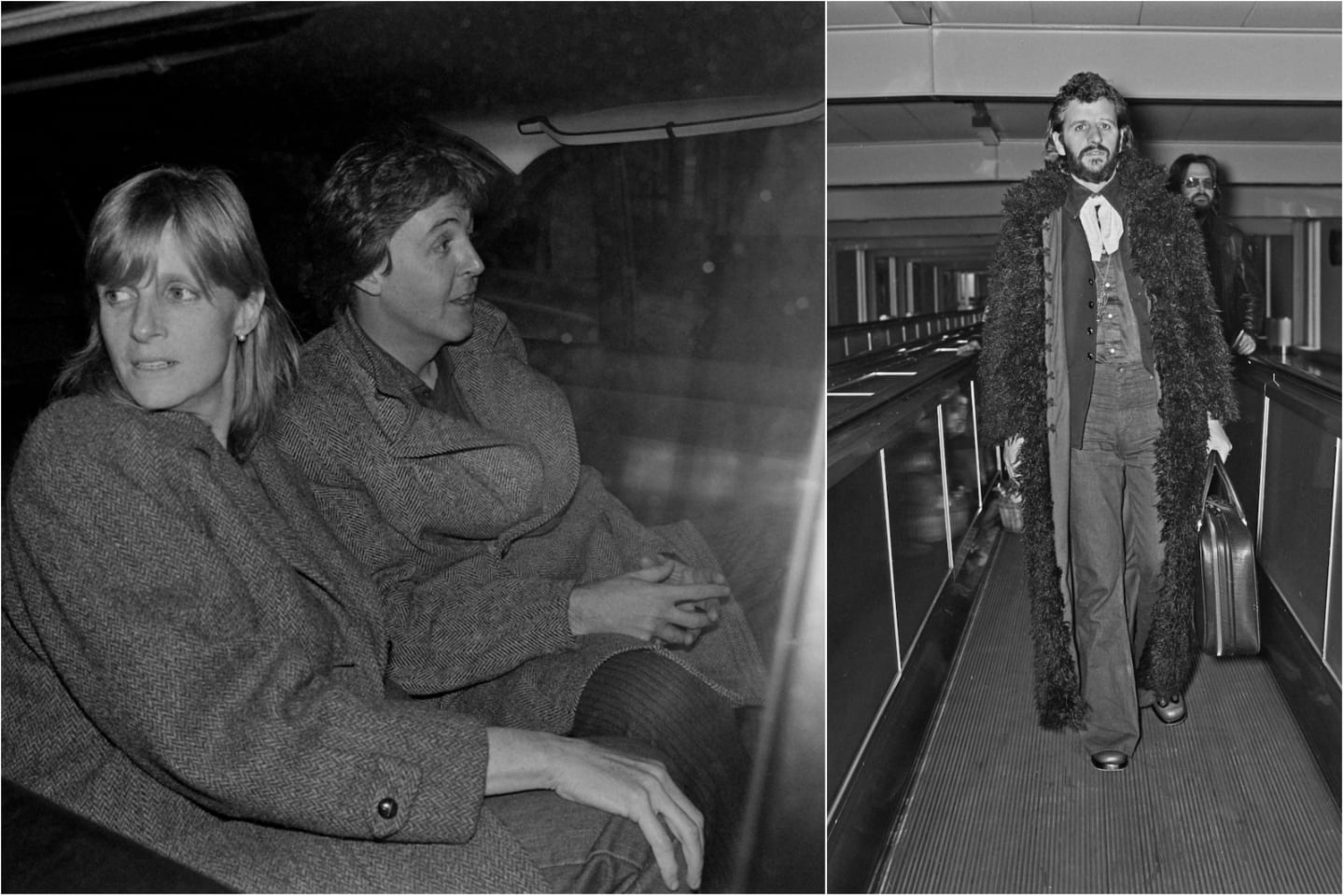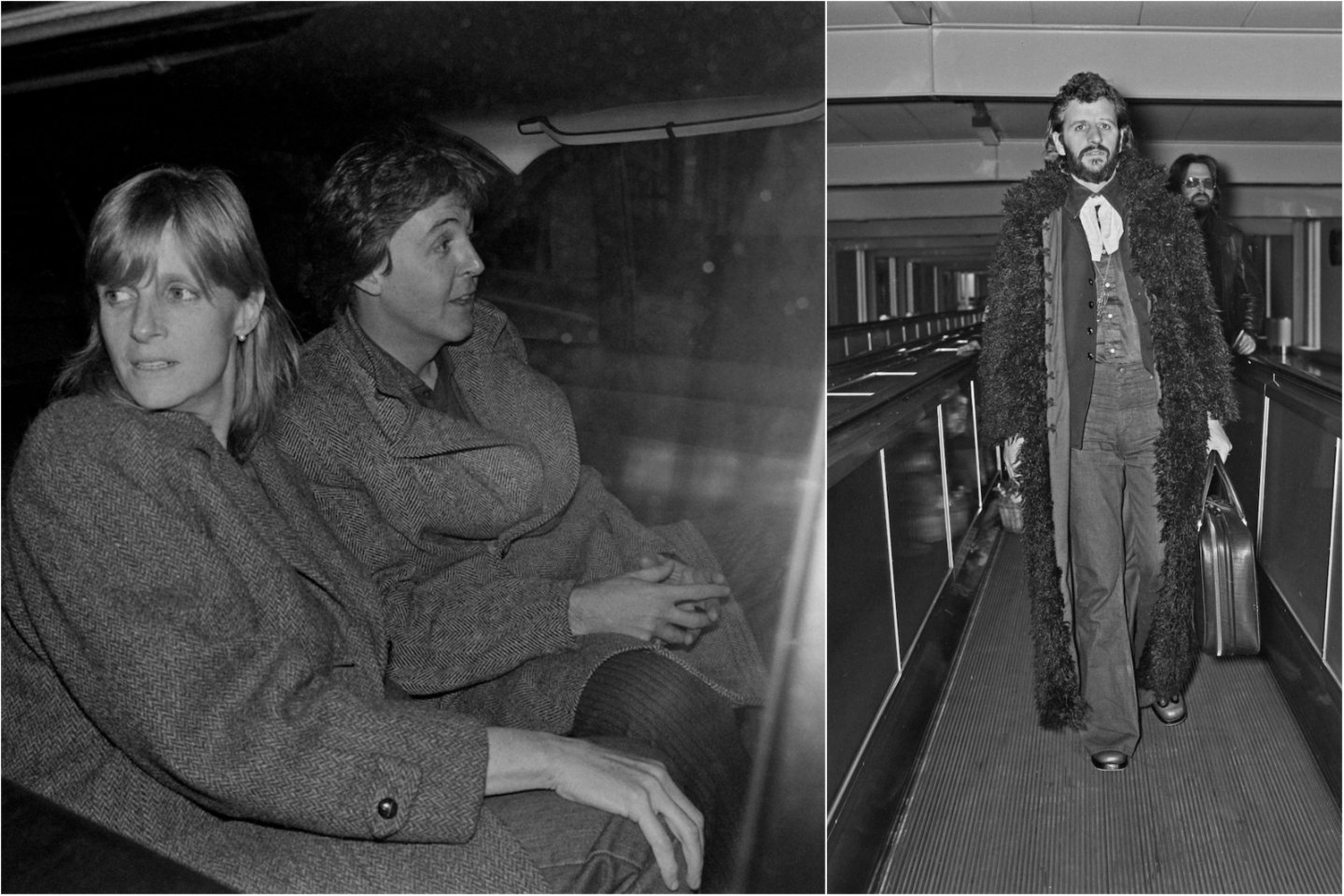
Linda McCartney Once Revealed She and Paul Were Afraid to Talk to Ringo Starr
Ringo Starr has led a remarkable life, to say the least. His steady timekeeping on the drum kit helped propel The Beatles to international fame, and he earned millions of dollars playing music. He only roomed with Paul McCartney while with The Beatles, but Paul and his wife, Linda, cherished their friendship with Ringo so much that they were afraid to have an important talk with him.

Ringo Starr lived like a rock after The Beatles broke up
The Beatles’ impressive album sales helped Ringo earn a fortune playing music. Still, he and his wife lived like simple people in their spacious mansion at the peak of the Fab Four’s fame.
After The Beatles broke up, though, he spent more time with friends such as the hard-partying Harry Nilsson, The Who drummer Keith Moon, and T. Rex frontman Marc Bolan. Ringo lived with Nilsson and John Lennon in his former bandmate’s rented house for a time in the 1970s. He often woke up hungover in the middle of the day wearing sunglasses and asking why the birds were coughing.
Ringo lived the hard-partying lifestyle of a rock star after The Beatles broke up. Linda McCartney once revealed she and Paul were afraid to talk to Ringo about it.
Linda McCartney said she and Paul were afraid to talk to Ringo about his alcohol addiction
Moon, Nilsson, and Bolan partied hard, and Ringo joined them. He remained musically productive in the 1970s, though, releasing a slew of singles and solo albums between 1970 and 1974.
The drummer was mad for years after The Beatles broke up, but he was never estranged from his bandmates. Ringo and Paul worked together on the drummer’s self-titled 1973 record (John and George Harrison did, too).
Ringo’s reliance on alcohol was apparent to Paul and Linda McCartney. Yet as Michael Seth Starr writes in With a Little Help, she and Paul were afraid to talk to him about it in the 1970s or even the early 1980s after the drummer married Barbara Bach:
“[We] knew about Ringo’s addiction to the bottle for years, but were afraid to say anything. We were only too aware that Ringo and Barbara were wrecking their lives, but we dreaded what would happen to the friendship we so cherished if either [of us] tried to intervene. There was nothing we could do about it.”
Linda McCartney on why she and Paul were afraid to talk to Ringo Starr about his alcoholism
Rooming together on the road and playing music together for the better part of a decade helped Ringo and Paul develop a close friendship. The McCartneys could have been the people who advised Ringo to help himself, but Linda revealed she and Paul were scared they might push their friend away altogether.
Luckily for Ringo and his friends, he found sobriety late in the 1980s and has abstained from alcohol ever since.
Paul and Ringo remain close friends
The two surviving Beatles remain close friends. Paul, who needed only a brief moment to know Ringo was the perfect drummer for The Beatles, pushed for the drummer to be inducted into the Rock & Roll Hall of Fame. The bassist delivered the speech at Ringo’s enshrinement ceremony.
Their friendship is as strong as Ringo’s commitment to living alcohol-free. When Paul joked about his drummer ordering a drink during one dinner, Ringo had an epic comeback that put Paul in his place. Yet the bassist didn’t take offense and later realized Ringo’s sobriety was nothing to joke about.
Ringo’s all-around healthy lifestyle has him looking years younger than he is. Paul and Linda McCartney were scared to talk to Ringo Starr about his alcoholism for fear of losing their friendship. Luckily for them, the drummer found sobriety.
How to get help: In the U.S., contact the Substance Abuse and Mental Health Services Administration helpline at 1-800-662-4357.


